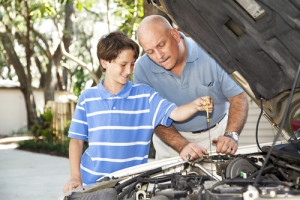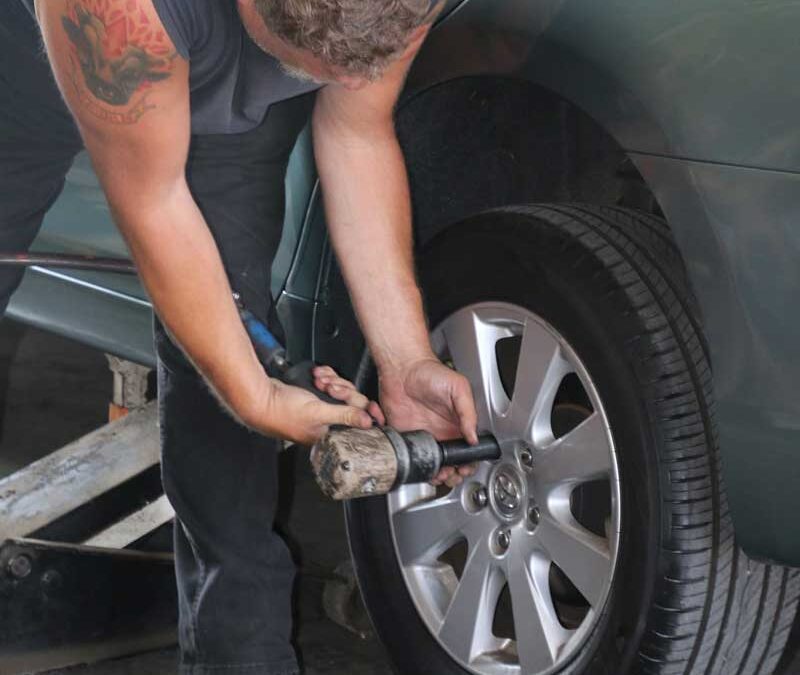 When it comes to owning an automotive, saving the money then doing the purchase is probably the easiest part. The hardest task comes when you have to repair and take care of the car. For it to last long, you have to do regular car maintenance of the car. This ranges from oil changes to brake checks.
When it comes to owning an automotive, saving the money then doing the purchase is probably the easiest part. The hardest task comes when you have to repair and take care of the car. For it to last long, you have to do regular car maintenance of the car. This ranges from oil changes to brake checks.
Car maintenance that you need to perform regularly
Regular oil changes
It is highly recommended that after every 3,000 miles, you should have an oil change. This is one of the most common and necessary car maintenance. By doing this, you get to extend the life of your engine. An extended lifespan saves you the cost of having to get a new engine every time it malfunctions because of negligence. Debris and sludge always build up in the engine when you fail to change your oil regularly. These result in piston rings being stuck and blockage of oil passage. A professional will only take 30 minutes of your time. That is if you have to wait for the car.
Replacing the brake pads
Ignoring squealing car breaks is a mistake that ends up being costly to majority of car owners. It’s dangerous and replacing of brake rotors costs triple the amount you would spent on the brake pads.
Changing the brake fluid
While still on the brakes, the brake fluid is yet another car maintenance that has to be checked. After every one or two years, you should have your brake fluid changed. This will take care of issues such as contamination which is a major cause of brakes malfunction. Brakes failure when you are on the road can be very dangerous as it could result to an accident.
Tire rotation
If you happen to be keen enough to read your car manual, you will not miss a recommendation by the manufacturer to rotate your car tires after every 6,000 or 8,000 miles. The reason for this is that front tires wear faster than rear ones. Rotating them is a cost-effective way of increasing the lifespan of the tires.
Tune-up
This is yet another car maintenance conducted every 30,000 miles. The purpose of the tune-up is to ensure your car is in good shape. The process involves inspection of the engine whereby it is attached to a diagnostic analyzer. The analyzer checks emission systems, ignition, and fuel. The car’s electronic sensor check can be conducted by use of a computer scan.
Other types of car maintenance services include checking the air cleaner, coolant services, hoses, spark plugs, battery, and the transmission service. All these services are geared towards ensuring efficiency of the car in terms of performance and your safety while on the road. A lot of money is saved in the process which can be put to better use. Having a car that is in good shape also saves you the headache of going in and out of garage stores every now and then.
As much as the time duration for the car maintenance varies, it’s good to check all the units every time you are out doing car maintenance. A good auto repair shop should be able to do that for you. They will identify any impending faults and have them fixed before they escalate.
When all these factors are taken into consideration, owning a car will be the best decision you ever made. While most of the services need the expertise of a mechanic, you need to make the effort of learning how things are done.
FAQ Section: Essential Car Maintenance Tips
-
Why is regular oil change important for my car?
Regular oil changes, typically recommended every 3,000 miles, are vital to extend your engine’s lifespan. Neglecting oil changes can lead to debris buildup, piston ring issues, and blocked oil passages, resulting in costly engine malfunctions.
-
How often should I replace my brake pads?
Ignoring squealing brakes is risky and can lead to costly rotor replacements. It’s advisable to replace brake pads promptly to ensure safe driving conditions and avoid more expensive repairs down the road.
-
Why is changing brake fluid necessary?
Changing brake fluid every one or two years is crucial to prevent brake system contamination, a major cause of brake malfunction. Maintaining proper brake function is essential for road safety and accident prevention.
-
What is tire rotation and why is it important?
Tire rotation, typically recommended every 6,000 to 8,000 miles, ensures even tire wear. Since front tires wear faster than rear ones, rotating them extends tire lifespan and promotes safer driving conditions.
-
What does a car tune-up involve?
Car tune-ups, recommended every 30,000 miles, involve inspecting and diagnosing engine components for optimal performance. This includes checking emission systems, ignition, fuel systems, and conducting electronic sensor checks.
-
What other car maintenance services should I consider?
Additional car maintenance services include air cleaner checks, coolant services, hose inspections, spark plug replacements, battery checks, and transmission services. These services optimize car performance and ensure road safety.
-
Why is it important to check all car units during maintenance?
Regularly checking all car units during maintenance helps identify potential faults early, preventing them from escalating into costly repairs. A proactive approach to car maintenance saves time, money, and ensures optimal vehicle performance.
-
How can I ensure my car remains in good shape?
Owning a well-maintained car requires regular maintenance and the expertise of a reliable auto repair shop. By staying proactive and addressing issues promptly, you can enjoy safe, efficient driving and avoid frequent visits to the garage.
-
What should I look for in an auto repair shop?
When choosing an auto repair shop, look for reliability, expertise, and a good reputation in the community. A trustworthy mechanic will provide quality service, diagnose issues accurately, and offer personalized maintenance recommendations.
-
Why is learning about car maintenance important for car owners?
While many car maintenance tasks require professional expertise, learning about car maintenance empowers car owners to understand their vehicles better. This knowledge helps in identifying potential issues, ensuring timely repairs, and maintaining optimal car performance for years to come.


